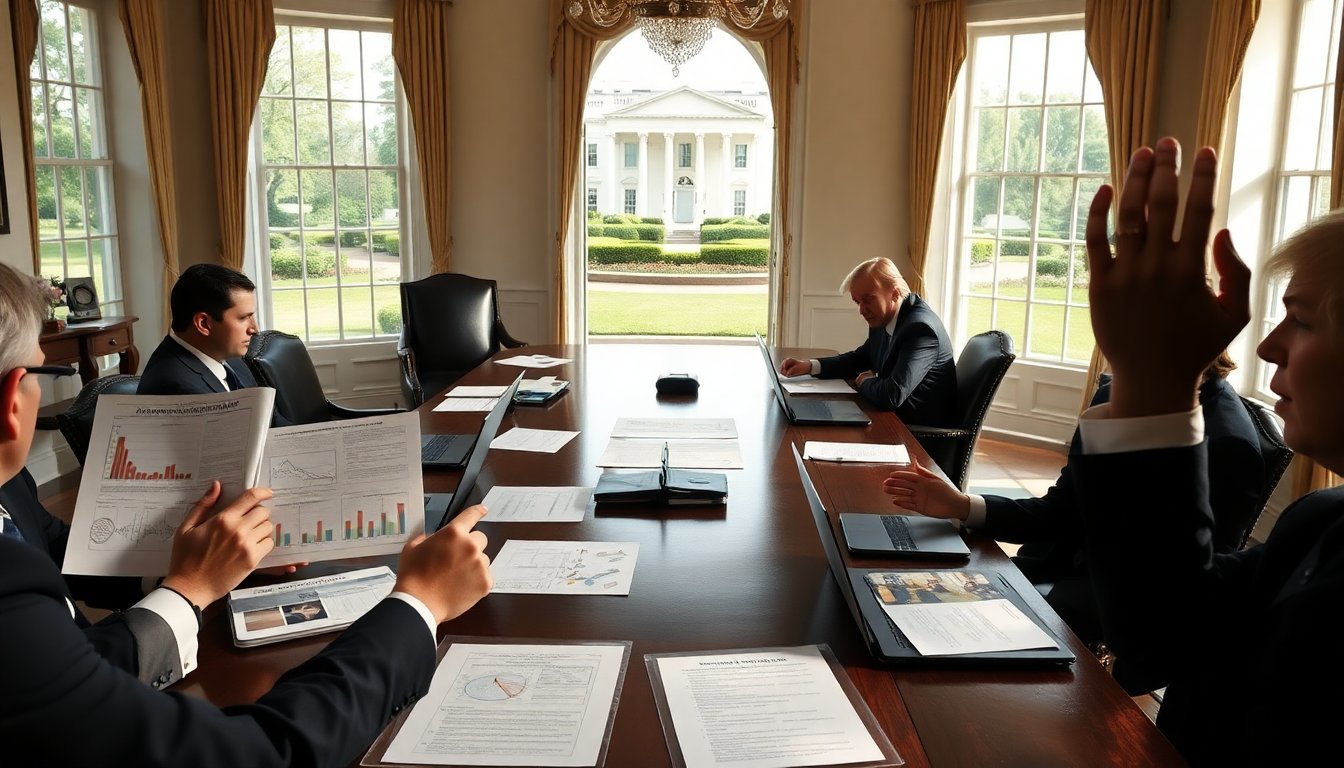Table of Contents
Discussions at the White House have seen President Donald Trump making stark comparisons between the anti-fascist group known as Antifa and recognized terrorist organizations, suggesting that they pose a similar threat to national security. This narrative, supported by his administration and some conservative commentators, seeks to underscore what they view as Antifa’s violent intentions and financial backing against American democracy.
During a televised roundtable event, officials, including Homeland Security Secretary Kristi Noem, portrayed Antifa as a sophisticated network of violence comparable to notorious criminal organizations like MS-13 and extremist groups such as ISIS and Hezbollah. Noem’s assertions, however, lacked substantial evidence to support these claims.
Framing the narrative around Antifa
Trump’s depiction of Antifa as a group intent on chaos is not a new development. He has characterized the movement as conducting a relentless campaign against federal agents from Immigration and Customs Enforcement (ICE). “These individuals are intent on harming our nation,” Trump asserted, further intensifying the rhetoric against leftist movements.
FBI Director Kash Patel echoed this sentiment during the roundtable, claiming Antifa is inflicting harm on communities nationwide and pledging to investigate its financial operations. His remarks contribute to the portrayal of the movement as a perilous conglomerate of “organized criminal thugs” and “domestic terrorists.”
Concerns from experts
Counterterrorism experts, such as David Schanzer, have expressed skepticism regarding the justifications provided by the Trump administration. They challenge the validity of the accusations against Antifa, suggesting that the government’s framing may focus more on suppressing left-wing activism than addressing any tangible threat. “If there is actual evidence of this level of organization, the authorities must act to protect citizens,” Schanzer stated, emphasizing the need for transparency and accountability.
Despite Trump’s declaration in September labeling Antifa as a domestic terrorist organization, legal analysts have noted that this classification lacks clear implications. Historically, the U.S. government has not categorized any domestic group in this manner, and federal authorities already have the necessary tools to investigate violent activities without such a designation.
Political motivations and implications
Amid rising tensions in cities like Portland and Chicago, Trump’s administration seems to be positioning itself for potential military involvement in Democratic-led areas, which he frequently describes as lawless. This strategy raises concerns about the politicization of law enforcement and its implications for civil liberties.
Attorney General Pam Bondi articulated a vision of countering what she termed “anarchy,” framing the actions of protesters as terrorism rather than legitimate activism. “We cannot allow masked individuals to intimidate our communities,” she asserted, highlighting the administration’s commitment to maintaining public order.
Voices from the conservative base
During the event, conservative influencers were afforded significant airtime to share personal experiences of alleged violence linked to Antifa, further fueling the narrative that an urgent response is necessary. One participant, Jack Posobiec, voiced grave concerns, stating, “We need to take measures now because lives are at stake.”
Trump’s ongoing focus on cities like Portland reflects a broader strategy to galvanize support among his base by portraying these areas as under siege. Noem’s visit to an ICE facility in Portland, which Trump claimed was “under attack” by Antifa, was presented with visuals that included minimal protests, contrasting sharply with the administration’s dire warnings.
During a televised roundtable event, officials, including Homeland Security Secretary Kristi Noem, portrayed Antifa as a sophisticated network of violence comparable to notorious criminal organizations like MS-13 and extremist groups such as ISIS and Hezbollah. Noem’s assertions, however, lacked substantial evidence to support these claims.0


